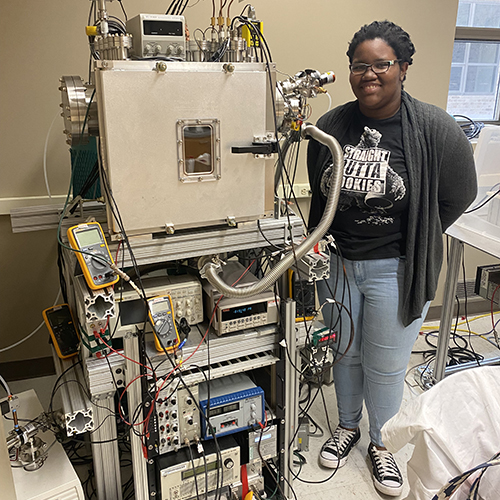Physics is the natural science that studies matter, motion, and energy and deals with the structure and interactions of the observable universe. Physics is one of the fundamental scientific disciplines, studying particles of the smallest scales, such as quarks, to the largest galactic clusters.
The primary goal of the physics program is to lay a strong foundation in the knowledge, practice, and applications of physics so that students will be scientifically competent and develop critical thinking skills needed for all her endeavors. The courses strongly support majors in other fields such as chemistry, computer information sciences, mathematics, and engineering.
Physics Department
350 Spelman Lane, S.W., Box 1703
Atlanta, Georgia 30314
404-270-5851
spelmanphysics@spelman.edu
Mon. - Fri. | 9 a.m. - 5 p.m.
Meet our alumna, Olivia Bruce, C'2023, a Ph.D. candidate at Notre Dame. She works in the Institute for Structure and Nuclear Astrophysics (ISNAP). Bruce is working with a detector system that performs Nuclear Mass Spectroscopy which can provide conclusive data on the standard model of particle physics.

It's time to explore our beautiful campus! Sign-up today, bring your family, and let us show you what will make Spelman College your home away from home!
